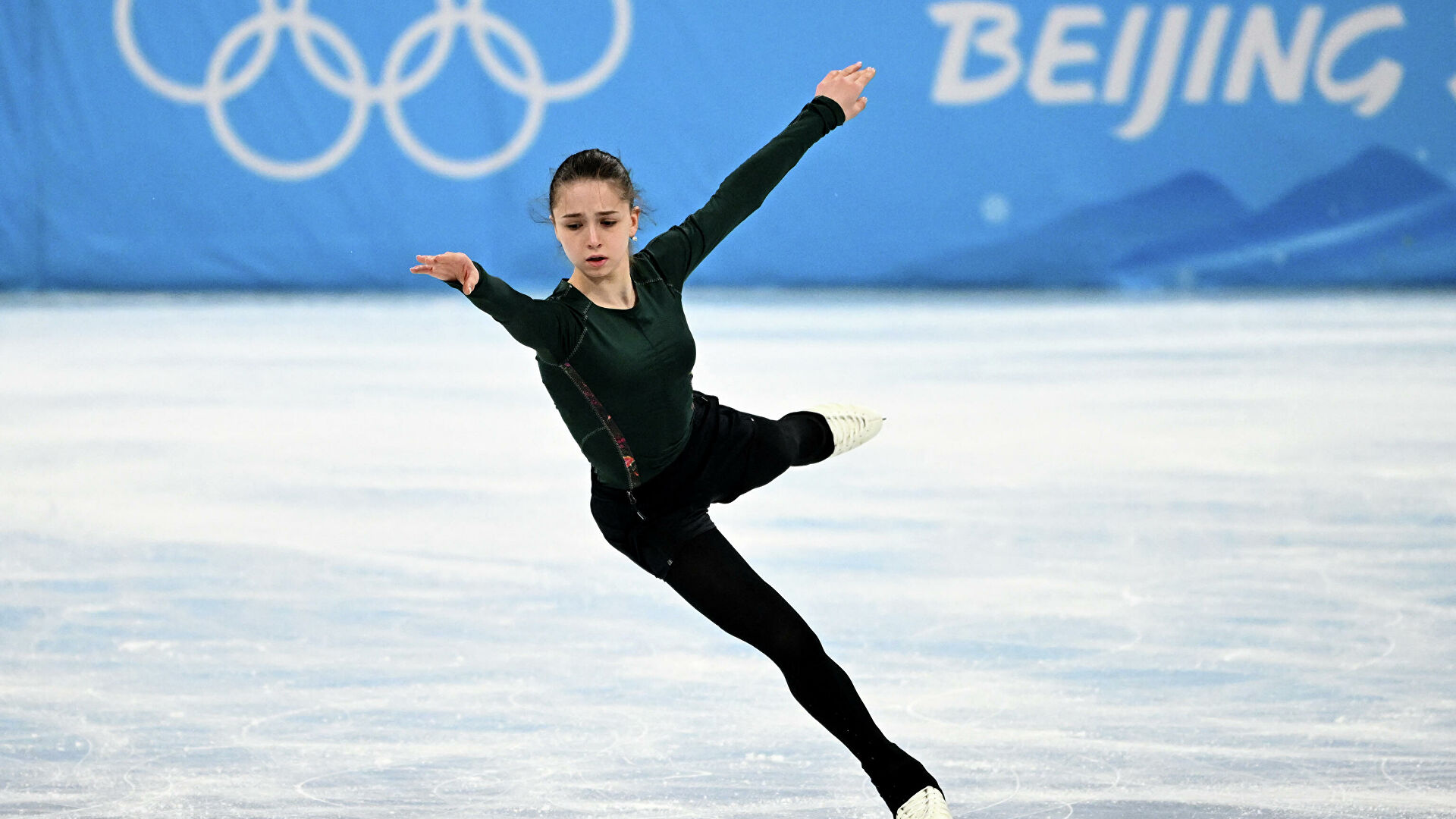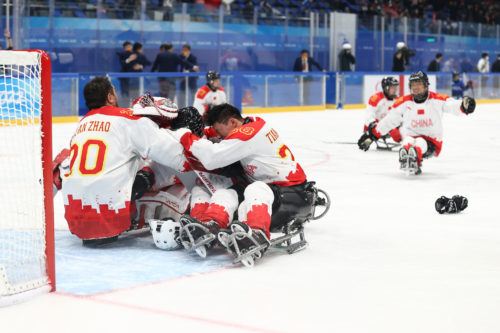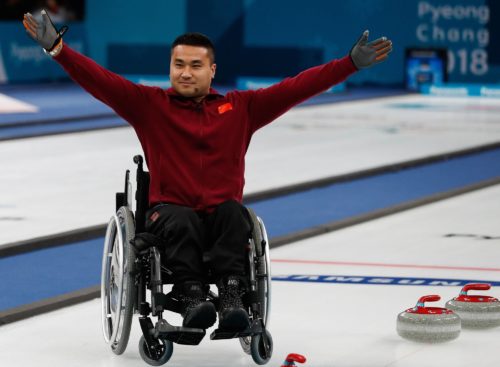What doping scandal? Chinese Olympic broadcasts skate around it
Chinese state broadcasters covering the figure skating events have made scant mention of the controversy surrounding Kamila Valieva. It’s one of the many ways in which China is determined to dictate the narratives of these Olympics.

Last Monday, 15-year-old Kamila Valieva became the first woman to land a quadruple jump at the Olympics. She did it twice. It was a feat that should have stood as one of the highlights of the Beijing Games.
Instead, that same day, a drug test result from December 25 was publicized: Valieva apparently had tested positive for three substances meant to improve heart function. While two of the three substances aren’t on the World Anti-Doping Agency’s banned substances list, their use in combination raised serious questions. Still, the Court of Arbitration for Sport ruled that Valieva could continue competing in these Games, citing a variety of reasons, to much international outcry.
All this has cast a shadow over figure skating at these Olympics. But could Beijing organizers actually welcome the controversy, as it takes attention away from other issues? Mark Dreyer and Haig Balian discuss this question in the latest China Sports Insider Podcast.
In the following excerpted transcript of their conversation, they also discuss aerial skier Xú Mèngtáo 徐梦桃, who won gold on Monday in her fourth Olympics. The emotional moment she shared with American Ashley Caldwell has been one of the best moments of sportsmanship we’ve seen this month, but is it already being appropriated by Chinese state media for propaganda purposes?
Click through to read the show notes for the episode, or listen to the entire show below:
Haig Balian: Mark, we haven’t talked about Valieva at all, but we can’t avoid it because it’s reached another level this week when the Court of Arbitration for Sport ruled that she could still compete at the Olympics, despite testing positive for a banned substance. It’s a huge story. Everybody’s talking about it. Has it ruined the Games?
Mark Dreyer: It’s a great question. I was asked many times, “What does success mean for China at these Games?” One is controlling COVID, two is doing pretty well in the medals table, and on those two we have big green ticks. The third one is avoiding some sort of big scandal. Now, of course, we were thinking about some sort of big diplomatic incident on human rights or Xinjiang-related sensitivities. This [doping scandal] was not on the radar. China’s done nothing wrong here and there’s nothing to connect China. But I’ll give you one example. Just as Sū Yìmíng 苏翊鸣 won his gold yesterday, which should have been a crowning moment, at the same time on Twitter, news was breaking about Valieva’s legal team saying that she had taken her grandfather’s medication by mistake. So this is very much overshadowing sporting success for China, at least globally.
I think the conversation within China is very, very different. I watched the singles skate last night on CCTV. There was no mention whatsoever of any kind of doping incident. There were cheers from the crowd. There are not that many people there, and it’s hard to know exactly what the audio channels are doing and what they’re picking up. But basically, it was just like, “she’s a great skater la-di-da, we have our fingers in our ears, nothing else going on here.” So, different narratives.
But I do think from a global perspective, this is the biggest story. It’s in the news cycle right now, which is bigger, globally, than the sport cycle. And it’s overshadowing the Games from that perspective.
Haig Balian: Okay, everyone’s talking about Valieva. But what they’re not talking about are the things that China doesn’t want them to talk about. And this was the thesis in that AP article by Stephen Wade. He argued that for China, the Valieva scandal is actually not that terrible, because everybody is talking about it. And they’re not talking about anything else.
Mark Dreyer: It’s a valid thesis, but I disagree with it. Number one, it’s not an either-or situation. It doesn’t mean if they weren’t talking about Valieva, then they had to be talking about Xinjiang or human rights. For me, we see it every single Games: it’s always negative, negative, negative, then the opening ceremony comes and we’re bombarded with positive sporting stories, and there are so many human interest stories, whether it’s Lindsey Jacobellis, who’s 36, and [Nick Baumgartner,] who’s 40, these two great grandparents winning golds, or the Dutch skaters paying tribute to their teammate, who sadly passed away recently, or whether it’s China sporting success — everywhere you look, there is stuff going on, and I think that’s a big reason why China wanted these Games. So it was a worry for sure that people were talking about it, but it doesn’t mean that without Valieva, that they would have been talking about other things.
Haig Balian: One thing that just occurred to me is that the thesis sort of hinges on the expectation that China actually cares what the rest of the world is talking about. And I’m not sure I’ve seen that much evidence, from this Olympics anyway, that they do.
Mark Dreyer: Yeah, it’s always the question, how much does China care about what the rest of the world thinks? Or how much is it just tailored toward a domestic audience? And it’s very hard, I think, globally, for people to understand that there are completely different conversations going on in parallel at the same time.
Haig Balian: That’s a huge conversation that goes way, way beyond sport.
Mark Dreyer: From a pure sporting perspective, the Valieva thing is farcical, right? Objectively, she’s tested positive and all the organizations are suggesting as strongly as they can that she’s going to be found guilty further down the line. They just can’t prosecute her today.
But it is a mess because of the emotions involved. And particularly because, of all the nations, it’s Russia — although we’re supposed to be calling them the Russian Olympic Committee, just as we were supposed to be calling them the Olympic Athletes from Russia. How many chances are they going to get for doing the same thing?
Haig Balian: Mark, China is having a pretty good Olympic Games so far…They’re already at 12 medals, with five golds, including wins by a couple of very, very high-profile athletes. Let’s talk about a few of those athletes. One is Xu Mengtao, who won gold in the aerials on Monday. And what was cool about this win was that, after her run, there was this great reaction from her American rival, Ashley Caldwell.
Mark Dreyer: Yes, there was a big embrace, with Caldwell saying, “I’m super happy for you.” And it was really interesting, because I watched this live on CCTV-5.
Now, there are different channels, and there’s online streaming, and there’s the Migu app, and of course, you can watch on other platforms as well. But on CCTV-5, the main sports channel, which the majority of China would be watching, where it’s possibly an older demographic, they didn’t focus on that at all. I think maybe the first time it was there in the feed. But it wasn’t on endless loop. I think we saw the performance and the winning run about four times, and we saw Xu’s reaction about four times, all the tearful interviews. It’s like, OK, it was so good, I was super happy for her. But at some point, you’re like, “There’s actually other live sports on, can we move on?”
We see the same medal ceremonies on endless repeat. I know other countries get nationalistic as well, but it’s a different level here. But what was interesting is that, overnight, this really did the rounds on social media, from my perspective, with a focus on the embrace from the American athlete and “what a nice sporting moment,” and it was only then that CCTV picked it up and was like, “Oh, this is a good kind of propaganda story and a good narrative.”
And it is! We’ve seen this before, such as with the U.S. and China gymnasts in Tokyo, going back to ping-pong diplomacy 50 years ago. There are these moments and they are legitimately nice. But, you know, as soon as they become part of the state narrative, then you’ve got to start to question it to a certain extent, right? It’s not a big deal. All the athletes, particularly in these freestyle and snowboarding sports, they’re all friends. Pretending, “Oh, look, the two countries can be happy!” — well, these guys have been friends for years, they haven’t been affected by the geopolitics.
Click through for show notes from the most recent episode of the China Sports Insider Podcast. More Beijing 2022 coverage is here.





